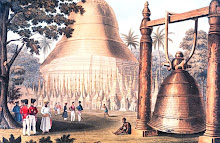Hello everyone,This is the first Blog that I have created for the purpose of studying Mon Manuscripts, which have been found in the area the most of Mon people living, especially in Monland, the present Burma, and Thailand. These Mon Manuscripts are worthy of making collection and research. They should be studied by their real owners, and preserved them safely. Some of Mon usages writen in those Manuscripts are not easily understood and deciphered by the present Mon of new generations, who most of them are less interested at reading even their own literature of old time. Not studying the old literature seems to be that the Mon literature does not have a wide range of use for the current situation. Most of the present Mon new generations consider them out of date and obsolete. Literally speaking, these manuscripts are never out of date and the obsolete Mon words are very very few. The ignorance of them leads to the creating new words, most of which are confused with the existing words in their meaning. And then the existing words become out of use and obsolete. This is the reason that they are saying these manuscripts are out of date, not suitable to use in the present writing. Their excuses for not understanding, using and writing degrade their own literature to the unbelievable position. This is a very sad and bad thing for Mon who ignore their old treasure that valuable to others who are not Mon. Because of this, I try making an attempt to accumulate the Mon manuscripts as possible as I can. This attempt may be the benefit of Mon both in Monland and Thailand.
Mon, If you don't breathe, there is no air. If you don't walk, there is no earth. If you don't speak, there is no word.
ဟိုတ်ဂှ်ရ လမျီုမည် ညံၚ်ဟဂွံတိတ်အာ နူမည်ဂှ် အရေဝ်မည် မည်ဟီုညိ ဂးညိ။ လိက်မည်ဂှ် မည်ကတ်ညိ ချူညိ။
ဂလာန်ကိုပ်ကၠာ
ညးမချူပတိုန်ထ္ၜး - လဂ္ဂန်ရာံ | တ္ၚဲဒိတ္ထဳ Wednesday, September 13, 2006ဇၟန်လိက်ဏံဂှ် ချူပတိုန်လဝ် ပ္ဍဲတ္ၚဲဒိတ္ထဳ - Wednesday, September 13, 2006 တုဲ စွံလဝ် ပ္ဍဲဇၟန်ပရူ - ဟိုတ်လိက်ပတ် ဂွံသဝ် ။ ဂလာန်မွဲမွဲ မခၠေဝ်ပလန်ဏာလဝ် ကုဇၟန်လိက်ဏံဂှ် အာပံက်ဗှ် ပ္ဍဲ RSS 2.0 feedတေံ ဂွံဒၟံၚ်။ ချူ စွံလဝ် ဂလာန်မခၠေဝ်ပလန်လေဝ် ဂွံဒၟံၚ်။ သာ်ဂှ်ဟွံသေၚ်မ္ဂး trackback နူမုက်လိက်သိုက်မၞးတေံလေဝ် ဂွံဒၟံၚ်ရ။
ဂလာန်ကိုပ်ကၠာ
2006-09-13T01:20:00+05:30
လဂ္ဂန်ရာံ
ဟိုတ်လိက်ပတ် ဂွံသဝ်|
Subscribe to:
Post Comments (Atom)


